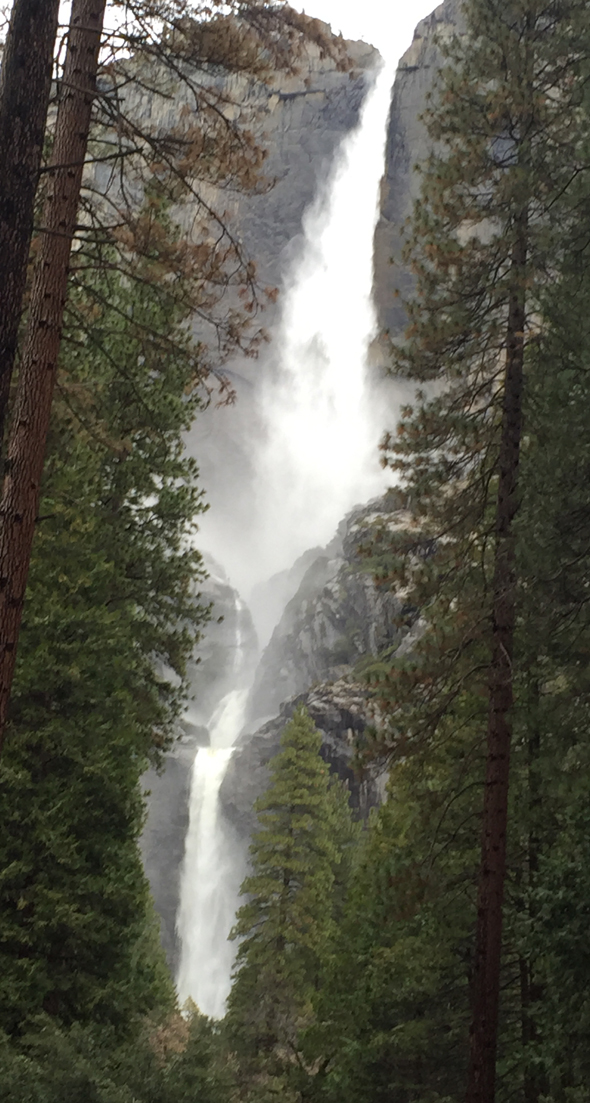QUESTION
2) When you think someone is having a stroke, you need to act FAST.
Give the word to go with each letter
and something to ask the victim to do, or something you need to do.
F____________
A_____________
S_____________
T_____________ Big hint, this one has two things you need to do.
These next photos are here to help keep you from scrolling down to the answer so you can you pause for a moment and think about what the answers are.
A photo from the De Anza College Outdoor Club between summer quarter and fall quarter Grand Teton National Park trip:
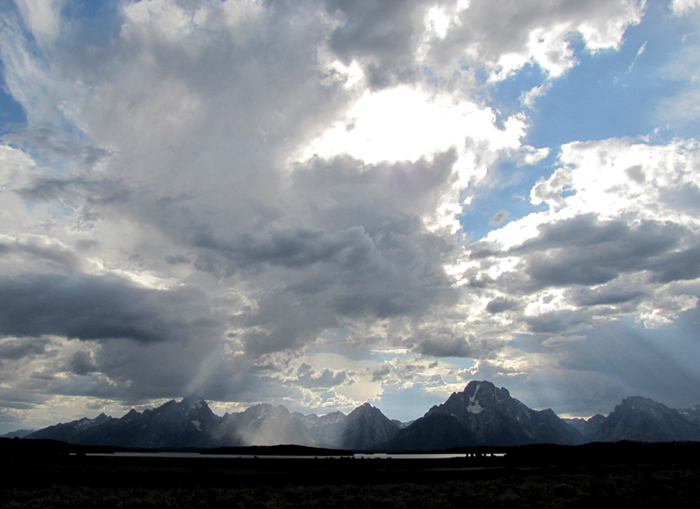
At different times of the day and night on The De Anza Outdoor Club winter Yosemite trip people have seen raccoons, coyotes, deer and ravens and more in the campsites. We also found tracks in the snow, below raven, raccoon and steel belted radials:
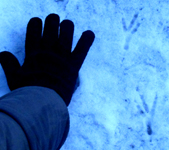
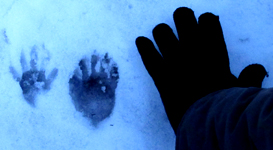

On the Outdoor Club Yosemite Winter trip you can do the hike shown below to the top of one of the highest waterfalls in the world:
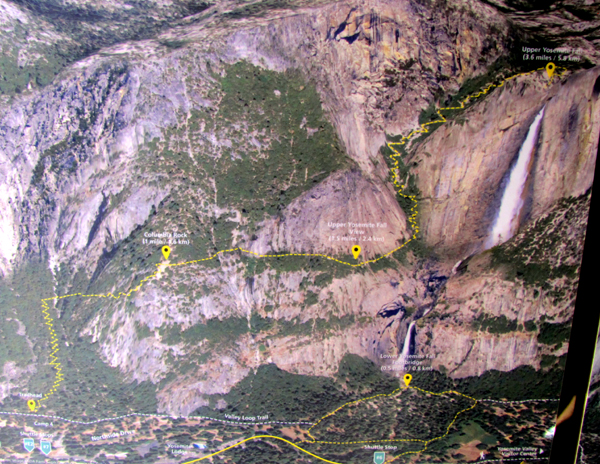
A stroke (also commonly known as a brain attack) happens when a blood clot or bleeding in the brain interrupts blood flow to part(s) of the brain, either through blocked or ruptured arteries.
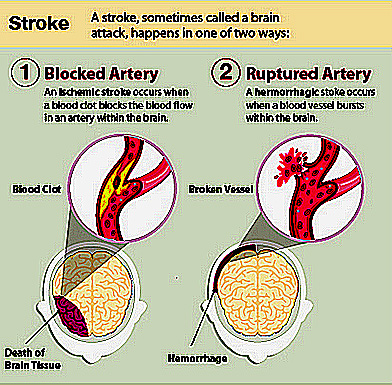
The American Heart Assn notes that: “The result is the brain does not receive the oxygen it needs to properly function. Stroke causes brain damage that can lead to significant disability, including difficulty thinking, talking, walking and interacting with one’s environment. In the U.S., stroke is currently the fifth leading cause of death, resulting in nearly 160,000 deaths annually. Every year, more than 600,000 people in the U.S. have a first stroke, even though up to 80% of strokes are preventable.”
Worth noting is that high blood pressure is a leading cause of stroke.
High cholesterol diets, diabetes and tobacco use increases the risk for stroke.
IV drug use is sometimes listed as a major cause of strokes in young people because the drugs are cut with cornstarch, artificial sweeteners, bleach crystals and/or animal tranquilizers.
Stroke rates among adults younger than 65 increased by 15% during the last decade.
When you ask the victim these questions,
you are trying to see if they have some of the signs and symptoms of a stroke,
such as
drooping of features on one side of their face,
weakness in their arm,
or trouble with speech and language.
ANSWERS:
(Your answer on the final does not need to include everything in the parentheses to get full credit, but reading all of this could help you comprehend the material.)
Face Ask the person to smile.
(Watch their face to see if both sides of their face move the same when they smile
or if there is drooping or weakness on one side of their face.)
Arm Have them hold up both arms, extended out straight from their body.
(Someone who had a stroke might be able to lift both arms up, but not be able to keep both arms at the same height
or might not be able to lift both arms up to the same height -one arm could drift downward-
or might have numbness in one arm and can not lift that arm up, or will lift it up slowly)
Speech Have the person try to repeat something simple you say, example: “The sky is blue.”
(Someone who had a stroke might have slurred, incoherent or distorted speech or trouble speaking or can’t speak at all.
OR they might speak clearly, but say the wrong words.)
If the person has difficulty with any of these three above:
Time
note the time the signs and symptoms began
and it is time to call 911 and tell the dispatcher about the symptoms and what time the symptoms started.
(Or tell the dispatcher if the stroke was not witnessed and you do not know when the symptoms started,
OR tell the dispatcher someone told you the time the victim was last known to be well and free of signs and symptoms of a stroke.)
– – – – – – – – – – – – – – – – – – – – – – – – – – – – – – – – – – – – – – – – – – – – – – – – – – – – – – – – – –
Examples of wrong answers students wrote on the final exam and did not get credit for:
Face: “ask the victim to stick their tongue out and move it from side to side” is something a doctor might ask a patient to do during a more complete neurological exam, but could be embarrassing for a person to do, and is not what you should be asking a stroke victim to do. Keep it simple and just ask them to smile.
Arm “ask the victim to lift up one arm” or “ask the victim to lift up their hand”
These are wrong because you need to see them try to lift BOTH ARMS at once so you can compare.
“check arm grip weakness” is wrong. (It is something you might check under different circumstances, but is not what you do for a possible stroke victim.)
“Ask them to lift arms to the sky,” and “ask them to lift arms overhead” are also incorrect answers.
Speech
The correct answer, asking them to repeat a simple sentence
(as in “say this, the sky is blue” or “repeat after me, the sky is blue”)
is all you should be asking them to try to say.
You do this to be able to hear if they are slurring words or are unable to form words or are having trouble speaking.
These next three are wrong because they are probably not able to answer questions,
“ask the victim “Is the sky blue?”
“ask the victim what state they live in”
“ask the victim “What color is the sky?”
not only because they might not be able to think well enough to answer questions, but also because you might only get a one word answer, and you need to hear more words than that to tell if they are slurring or are unable to form words / having trouble speaking.
“Try to make them speak,” is not a correct answer. You should ask them specifically (“say this, the sky is blue” or “repeat after me, the sky is blue”)
Time “ask the victim what time they had the stroke” or “ask the victim how long they have been having the stroke”
or “ask when did this happen to you,”
or “what time did you have the issue”
or ask “How long have you been feeling this way?”
These are wrong because they usually do not know they are having a stroke and would have no idea when their symptoms started.
“Ask victim – Do you know what time it is,” is also wrong because they are having a stroke and do not know.
“it is time for you to take them to the hospital”
“call 911 or take to the hospital”
These are wrong because they need a specific drug to potentially reverse the symptoms of the stroke, and need it quickly. You need to call 911 so they can get the care they need. If you take them to the hospital you will delay the start of required care.
“recognize they are having a stroke and perform CPR” is also wrong, because you would not perform CPR on a stroke victim, only on a person who is in cardiac arrest.
“Call 911 as soon as possible.” This is wrong because you need to call 911 right away, not as-soon-as-possible.
![]()
Making the call to 911 promptly is crucial.
Quoting in part from a news article, but leaving out names, locations:
“A man was involved in a one-car accident on a freeway on-ramp. The Highway Patrol officer did not call an ambulance. Instead, she observed the man for 45 minutes after she arrived on the scene, then arrested him on suspicion that he was on drugs — he had actually suffered a stroke. He wouldn’t get to the hospital until hours later.
Though he had no alcohol in his blood and no evidence of drug use in the car, he was taken to County Jail, where a nurse took his blood pressure but refused to admit him, saying he needed emergency care.
Two hours passed. Then he was taken to a local hospital, where he was admitted three and a half hours after he was found at the scene of the crash.
. . . the delay caused brain damage — he is now in a long-term residential care facility and is unable to care for himself. If he had been able to get an intravenous treatment soon after the stroke, the damage would have been mitigated. . .”
– – – – – – – – – – – – – – – – – – – – – – – – – – – – – – – – – – –
Diabetes increases the risk for a stroke.
A poster from the CDC (Centers For Disease Control) for doctors about telling their patients
how to prevent diabetes:
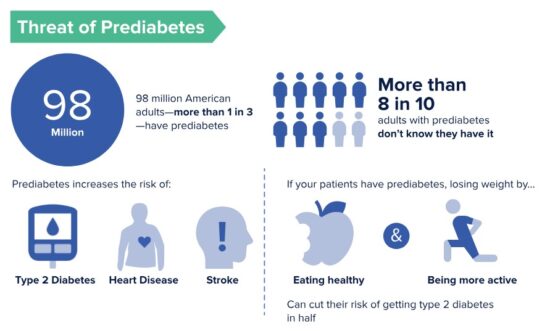
You CAN buy ketchup, peanut butter, salad dressings, jarred pasta sauce, granola, applesauce, protein bars, (fat-free or low fat) yogurt and (fat-free or low fat) chocolate milk without sugar added or try a brand that says it has, for example, “half the sugar of regular chocolate milk.”
The first step is to be aware and read labels.
see: https://www.cdc.gov/diabetes/healthy-eating/spotting-hidden-sugars-in-everyday-foods.html
– – – – – – – – – – – – – – – – – – – – – – – – – – – – – – – – – – –
In the New York Times we read: high blood pressure can damage brain cells, and it’s a significant risk factor for stroke and dementia. When blood pressure is too high, it places stress on the walls of arteries in the brain. Over time, that added stress can cause the blood vessel walls to thicken, obstructing blood flow. In other cases, the increased pressure causes the artery walls to thin and leak blood into the brain.
These changes to the blood vessels can sometimes cause a large stroke to occur. More commonly, the damage leads to micro-strokes and micro-hemorrhages, which cause fewer immediate problems and often go unnoticed. But if someone has hypertension for years or decades, these injuries can build up, and the person may start to experience cognitive impairment.
Hearing and vision loss have both been shown to increase the risk of dementia. Experts think that with less sensory information coming in to stimulate the brain, the regions that process hearing and vision can start to atrophy. What’s more, people with sensory loss often withdraw or are left out of social interactions, further depriving them of cognitive stimulation.
Oral health can also affect your brain health. Research has found a connection between regular flossing and reduced odds of having a stroke. That may be because good oral health can help to reduce inflammation in the body. The bacteria that cause gum disease have also been tied to an increased risk of Alzheimer’s.
And have you gotten your shingles vaccine? There is mounting evidence that it’s a powerful weapon for protecting against dementia. One study found that it lowered people’s odds of developing the condition by as much as 20 percent.”
– – – – – – – – – – – – – – – – – – – – – – – – – – – – – – – – – – –
(Note to on-line users not in my classes: this is a study sheet.
It is not complete instruction in first aid or the topic named in the webpage title.)
The author of this webpage, (written as a homework reading assignment for my students), does not give any warranty, expressed or implied, nor assume any legal liability or responsibility for the accuracy, completeness, or usefulness of any information, product, or process included in this website or at websites linked to or from it. Users of information from this website assume all liability arising from such use.
– – – – – – – – – – – – – – – – – – – – – – – – – – – – – – – – – – –
